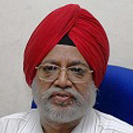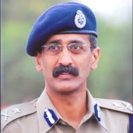About
Economic Crimes, whether committed in an organised manner or otherwise is primarily a category of crime motivated by greed. In developing countries, where regulatory and enforcement systems are not well developed, economic crime emerges as a major threat to the national economy. In order to ensure that regulatory and enforcement systems are able to manage the risks, there is a need to systematically study various dimensions of economic crimes & their patterns, nature, range etc and develop statistical models and fraud prediction tools. In order to achieve this, a forum has to be created where the academia from the disciplines of Economics, Finance, Statistics, Law, IT and Accountancy etc would closely interact with professionals from the fields of banking, insurance, law enforcement, taxation etc to find viable solutions . There is no such Centres functioning anywhere in the country. Advanced countries like the U.S have such Centre, for example, Centre for the Study of Economic Crimes in Florida State University College of Criminology in Tallahassee, Florida.
Objectives
• To assist the policy makers in streamlining regulatory and enforcement mechanisms in the above mentioned areas and also help in conceptualizing and formulating legislative responses for such streamlining.
• To help Banking, Insurance, Capital Markets and other related sector in devising risk management strategies.
• To help in the development of fraud prediction models and early warning for regulatory enforcement agencies, other government departments and also for the corporate world.
• To assist the policy makers in the areas of developmental policies and anti-poverty schemes by evolving risk management strategies in subsidy schemes and in various forms of incentives and anti-poverty programmes.
• To study the efficiency of justice delivery system from time to time in the context of economic crimes.
Impact on National Economy
Economic crimes cause significant damage to the general economy of the country, adversely affecting the growth and development of the nation. Internationally, they erodes the confidence in the financial credibility and stability of the nation, thus undermining its global competitiveness and further, becoming unattractive to investments from within as well as without.
Where there is a high incidence level of economic crimes, the government and bureaucracy are also viewed as corrupt and weak. Some of the major impacts on the national economy that may be caused by economic crimes are:
• Increase in inflationary pressure
• Uneven distribution of resources and creation of elitism
• Marginalisation of tax base
• Generation of abundant black money
• Creation of a parallel economy
• Undermining of developmental works/efforts
• Becoming a breeding ground for corruption
• Thriving of illicit business affecting licit business
• Resources of financial and commercial institutions are divestment distortion
• Weakens morale and commitment of citizens
• Poor/weakest continue to be at risk
• The economic equilibrium of the country is at stake
A significant corollary to the above is the diversion and investment of the illicit money (black money) acquired by committing such crimes into furthering crimes and the hegemony of the criminal syndicates rule. The threats to public security and eventually national security would appear imminent as an ultimate consequence.
There is an intimate relationship between narcotics trade, arms smuggling and terrorism. Combating the smuggling of narcotics and arms will be a major thrust area in future. Use and circulation of counterfeit currency will continue to be a threat to internal security and economy of our country. Therefore, detection, investigation and prosecution of counterfeit currency is likely to assume greater importance.
Money laundering is going to be another future thrust area. The impact of this illegal activity on the economy of the country is profound. If the economy of the country is to move to a higher growth path, strong curbs on hawala operations and money laundering will become essential.
Investigation and prosecution of cases of violations of Intellectual Property Rights, audio/video piracy and related crimes will assume greater importance in the years to come.
More and more private investors are likely to invest their money in the primary and secondary share markets. With increased trading on exchanges and with the laws and regulatory mechanisms usually being several steps behind the requirements of the situation, market manipulations by promoters and the stockbrokers are likely to increase. As a result, more and more cases pertaining to Stock Exchange will come up.
Resource Person
 |
Dr. Balwinder Singh, IPS (Retd.)
Director
Former Special Director, CBI, India |
 |
Shri Pankaj Kumar Singh, IPS
Executive Director
Addl. DGP Crime Branch, Rajasthan |
 |
Mr. Vijay Singh Sheoran
Centre Co-ordinator
Email:vijaysinghsheoran@policeuniversity.ac.in |
Activities
1. Centre for Economic Crimes and Counter- Corruption Studies of Sardar Patel University of Police, Security and Criminal Justice, Jodhpur conducted a one day workshop on topic – a Workshop on Investor Awareness Program cum Financial Literacy was conducted on 23-01-2016 at the University Campus.
Mr Mukesh Bansal, Company Secretary, Founder Chairman Jodhpur ICSI and Resource Person, Bombay Stock Exchange Investor Protection Fund (BSE IPF) was the Chief Guest for the occasion.
The workshop was attended by the Students, Faculty Members and Staff of the University.
The emphasis was put on to stay away from unrealistic returns guarantee fraudulent schemes like Ponzi Schemes, Collective Investment Schemes and Multiple Level Marketing Schemes.
The importance of Savings was discussed, as saving will be the source of facing some unexpected uncertainty and living honorable life in the post retirement days. The participants also took resolution for being conservative about their expenses and to learn about the financial terms, importance of the savings and smart investments. The workshop ended with the awareness about the Banking Frauds and their mitigation methods. Participant were enlightened with the newly developed ways resorted to infiltrate into any person’s personal account through identity theft and social media engineering ways. They also learned about the new technology NFC (Near Field Communication) and how it is going to be the new way to steal the money from individual’s Credit/Debit Card. See Galary tab for photos.
2. Centre For Economic Crimes and Counter-Corruption Studies of the University conducted a two day workshop on "FRAUD RISK MANAGEMENT IN LARGE CORPORATE CREDITS" April 25-26, 2014 at Jodhpur. The then Deputy Governer of Reserve Bank of India, Dr. K C Chakrabarty was the Chief Guest. The workshop was attended by more than 50 officers from leading public and private sector banks.
3. Centre For Economic Crimes and Counter-Corruption Studies of the University conducted a two day workshop on "FRAUD RISK MANAGEMENT IN LARGE CORPORATE CREDITS" November 27-28, 2013 at Jodhpur.
4. Centre For Economic Crimes and Counter-Corruption Studies of the University conducted a one day workshop on "Inter agency co-ordination for curbing economic crimes and corporate frauds on" 28 September, 2015 at India International Centre, New Delhi.....Click here for more detail
5. Centre For Economic Crimes and Counter-Corruption Studies of the University conducted two day workshop on "‘INVESTIGATION OF FINANCIAL FRAUDS’" 8-9 September, 2016 at Rajasthan Police Headquarters, Jaipur..
Downloads
Centre For Economic Crimes and Counter-Corruption Studies of the University conducted two day workshop on "‘INVESTIGATION OF FINANCIAL FRAUDS’" 8-9 September, 2016 at Rajasthan Police Headquarters, Jaipur.
Download content Here
1.BANK FRAUD INVESTIGATION PPT
2.LC FRAUD CASE
3.Shri Balwinder Singh- MLM Frauds
4.Shri KAPIL GARG- Cyber Crimes
5.Shri Rajesh Nirvan- Credit Card Frauds
6.Shri Vivek Priyadarshi- Shell Companies
7.UNION Bank Case
8.WAREHOUSE RECEIPT CASE
9.PPT INSURANCE FRAUDS



